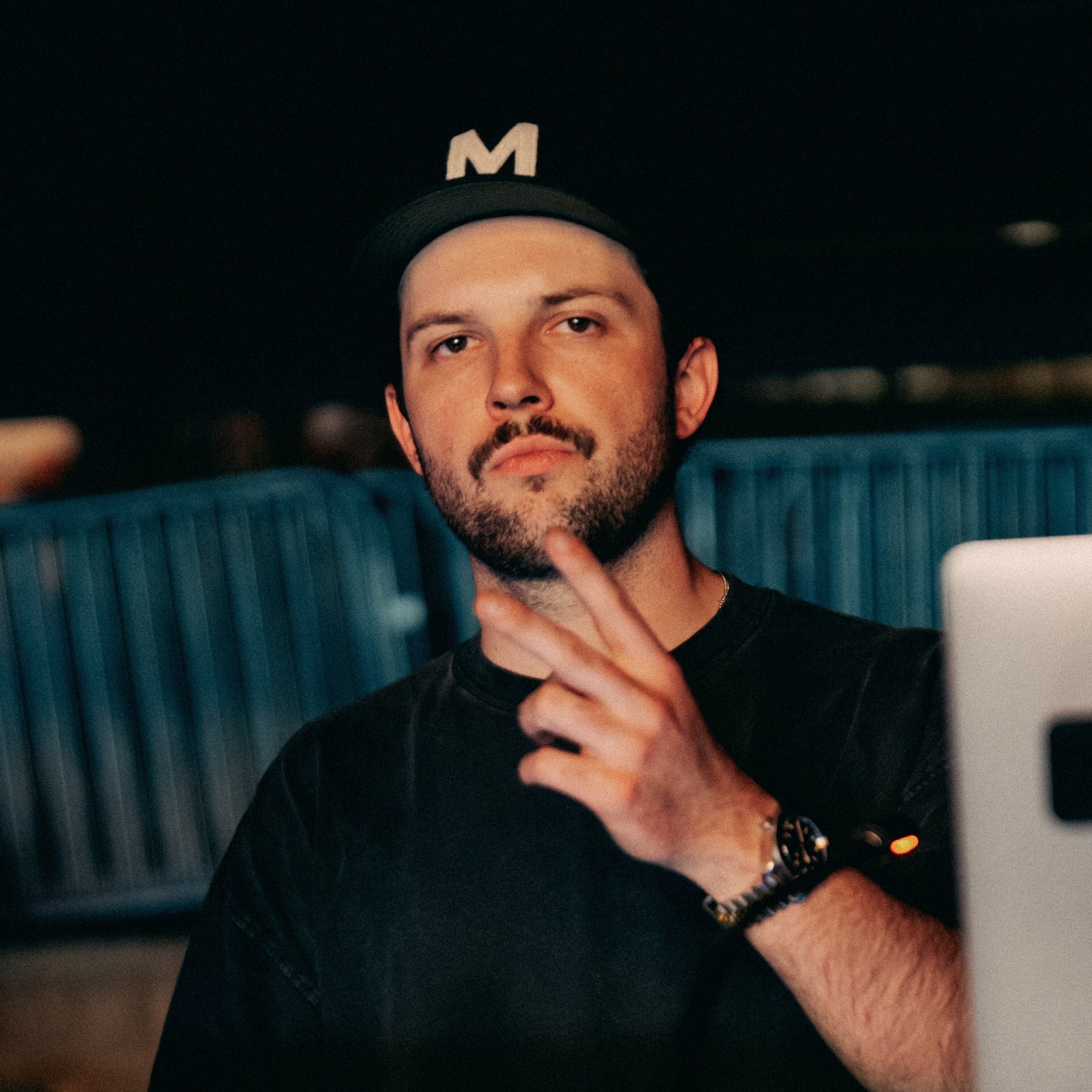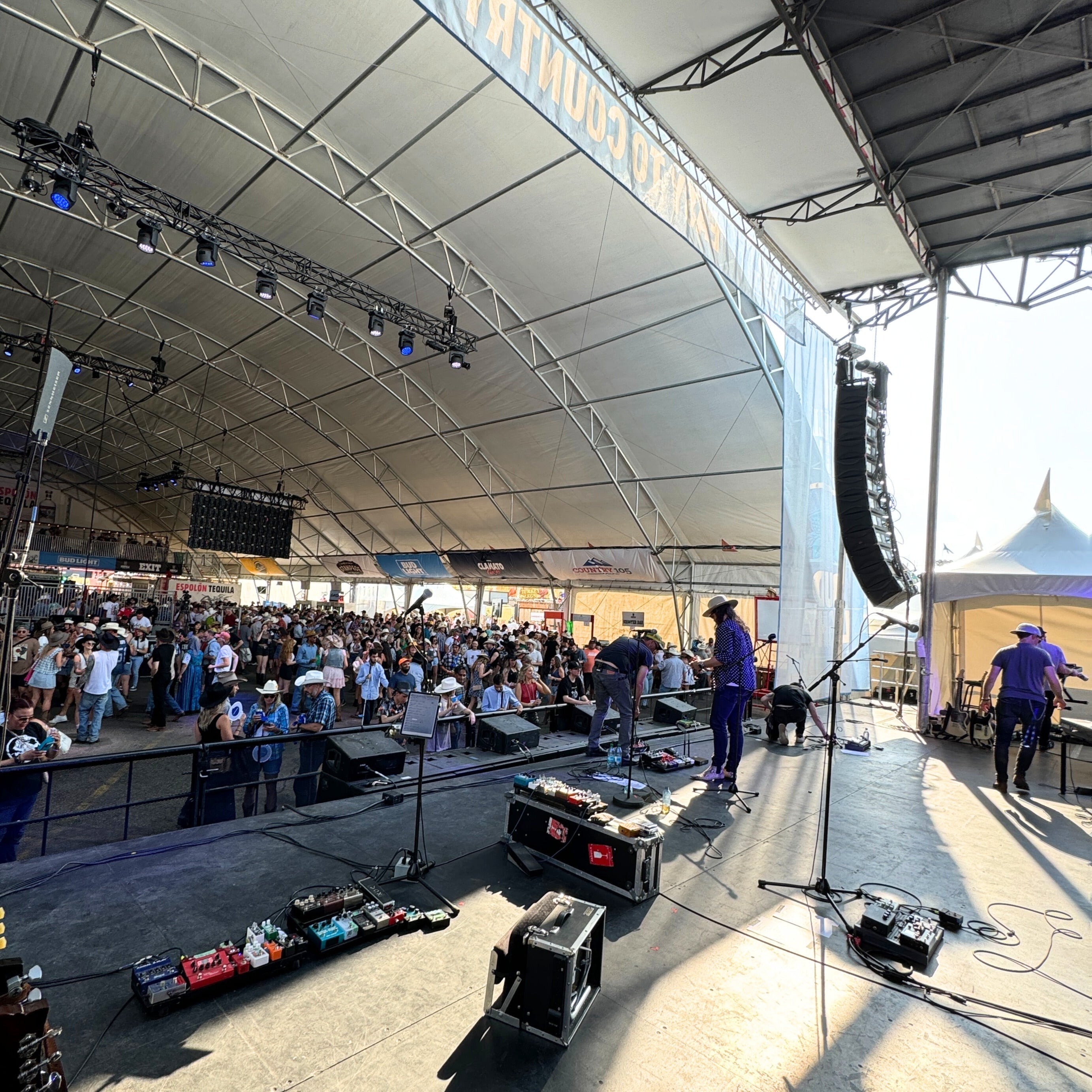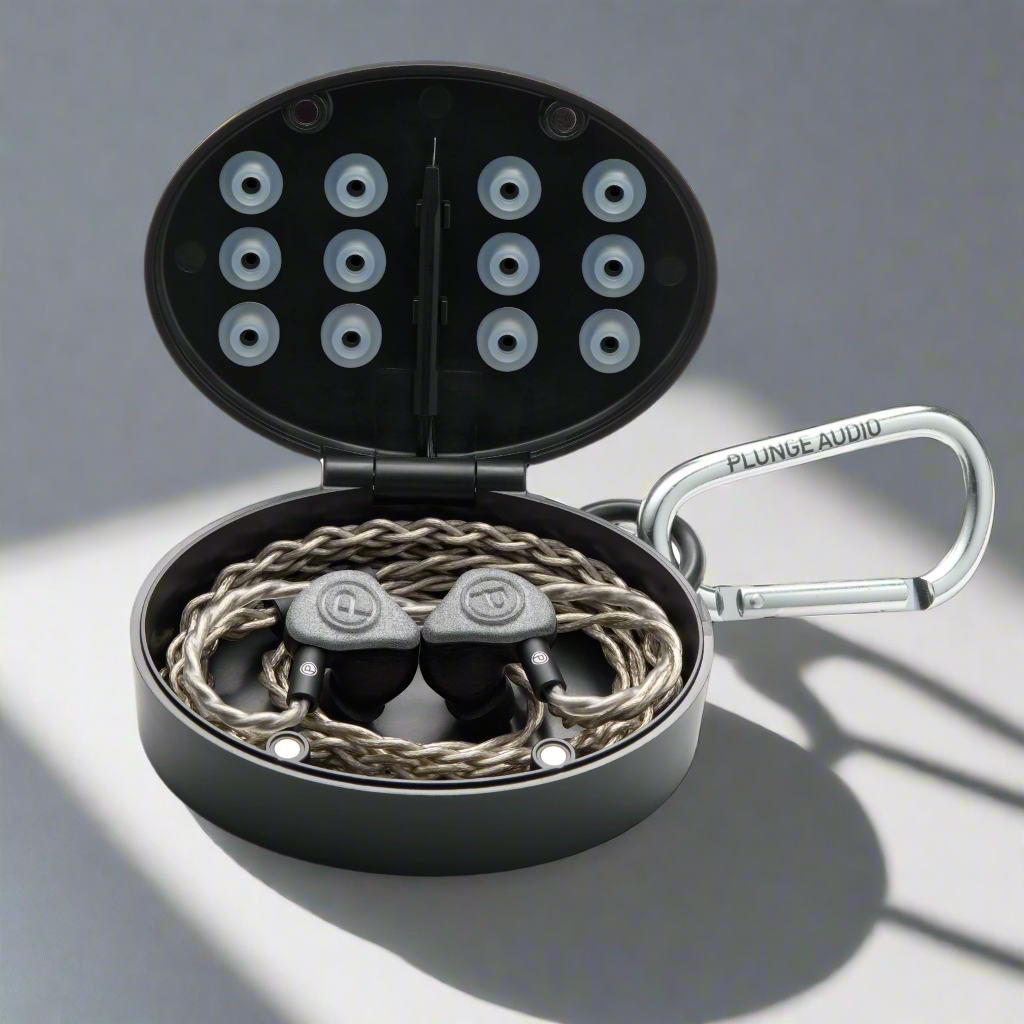Tyler Carino is a seasoned audio technician and drummer with a deep passion for connecting people through music. As the President and CEO of Day One Productions, Tyler specializes in sound engineering, drum teching, and gear specification. We sat down with him to chat about his musical journey, some memorable moments on the road, and all things IEMs. Let's dive in!
What initially inspired you to pursue a career in music?
I began as a drummer in my local church, and eventually stepped into the production side with a natural desire to learn how systems worked, and this lead to the career I have now in Live and Post/Studio environments. I love the artistry behind how music is created, from conceptualization to mix and release.
Can you share a memorable moment from your musical journey that has had a significant impact on you?
I vividly remember the first tour I ever did, I was PM/Mons for Pat Barrett, opening on a Tomlin/Hillsong UNITED tour. I was so green to tour, and to working with people on a professional level like this.
I grew up listening to UNITED, and they were the reason I wanted to drum in church. I played a lot of their songs and looked up to a lot of that group. Stephen Pippett (UNITED PM) had asked me if I would double-dip with them and simply just run lyrics during their set, and of course, following them for years, I said yes, seeing it as the coolest opportunity ever.
There's a moment in their set where they play the instrumental loop of "The Stand" over and over a few times, building anticipation and interest, as the crowd slowly caught on, waiting to sing the chorus. My job was literally to put the lyrics on the screen, in time with the band, to start that part of the song. For some reason I felt SO MUCH pressure, but took it as seriously as any other role I'd ever had. I threw the lyrics up at the right moment, and the crowd slowly erupted into the chorus, which was repeated a few times, building progressively. "I DID THAT" is all I could think in that moment. Not necessarily to take away from the moment itself, but just to appropriately realize the weight of each role.
I sat back and kind of had this realization that every role is important, and that they all go hand in hand to make the shows happen, regardless of the artist/genre. Since then, I have always tried to maintain that perspective of never being too big for a role, and never down-playing the significance it carries. Remembering that there was always someone before me and will always be someone after me is key to maintaining that humility in an industry where everyone is competing to be "the guy".
What influences have shaped your approach to audio and sound design?
My love for the classical and jazz genres have helped shape my artistic mindset behind why I mix, or use the tools I do. The purest form of artistry is getting what you hear in your mind out in the form of music, through instruments OR mixing. As a musician and an engineer, I have had the privilege of experiencing both, and wouldn't trade it for anything.
I am incredibly analytical and love the science behind everything I do. I have a few industry friends that consistently challenge me in this area to make sure I know what is happening behind the scenes of my mix, as I do them, as well. (David Loy, Justin Whisnant, Zach Kimrey, Joel Willis)
I also question everything because I love to understand why people do what they do. This carries into all of my processes, creative or logistical, and keeps understanding the "why" at the forefront of my decision making.
If you could be the tech for any musical event in history, which one would it be and why?
I am an atypical industry guy. I don't really have a dream "artist" or "show" to work for. However, I would love to simply watch the conceptualization, then capture and mix an orchestra or classical pieces, if I could choose my dream "gig".
I believe this is the most beautiful form of music in the world, because it is played entirely on physical instruments, and very rarely has lyrics. To communicate thoughts and feelings through notes, chords and harmonizations, all playing individually, yet as a collection of musicians is such a beautiful form of translation that humans have yet to replicate to the same effect at any other time or in any other area of life.
 If you could teleport to any concert in history, which one would you attend and why?
If you could teleport to any concert in history, which one would you attend and why?
I'm sure I'll get some heat for not picking one of the huge rock concerts from back in the day or something similar, but truly I would have loved to have seen Vulfpeck live at Madison Square Garden back in September of 2019. I think they write such great music, and they put on such a great show! Always love the artistic decisions in their music, the creativity blows my mind every time they put something out.
If you could collaborate with any artist, living or deceased, who would it be and why?
This is really hard, and I think I have to make it a three-way tie. Hans Zimmer, Ludwig Goransson and Tchaikovsky. All revolutionary composers, who have created pieces that have impacted the world. To just sit in a room and watch them create would be like a kid in a candy store!
What's the most memorable feedback or reaction you've received from an artist?
I was mixing the Direct Support act (Kameron Marlowe) for a Kane Brown show in Brisbane, Australia, and one of my closest friends and mentors, David Loy (FOH for Kane) came out, put his hand on my shoulder and said, "you should probably turn around and take a quick look behind you at some point." To my surprise, Kane and about 40 other people were standing behind me watching and listening to the show. David later came over and gave me some huge encouragement for my mix, and mentioned that it was rare for them to all stay out to listen for that long, and the rest of his crew reciprocated the sentiments. I was simply doing my job, not even paying attention to who was listening or anything like that, so I thank David for giving me perspective and encouraging me in my work. It was so humbling.
How did your collaboration with Plunge Audio begin?
On that same tour with Pat Barrett, I met James Bundy. He and I hit it off, nerding out over some tech stuff, couldn't tell you exactly what it was. We had a day off and were hanging out in a hotel parking lot by our buses, and he mentioned Plunge, which was still in its earlier stages, and what it had set out to accomplish. He gave me a set to try the next show we had, and I was SHOCKED at how much better a universal set of IEMs I had never heard of sounded compared to my custom-molded JH 10X3's I had just purchased (don't get me going on that tangent).
He explained a lot of the science behind the build, and even showed me the differences in the gauge of cable used and how they affected the response from the IEMs. I was sold, especially for a product that helped solve the lopsided quality-to-price ratio problem that plagues IEMs today.
What specific features do you look for when choosing IEMs for your performances?
Function over hype. I don't care if you put 2 drivers or 20 drivers in an IEM. I care that 1) they are capable of volumes that overcome a lot of stage volume 2) that they are phase coherent and have great sound-staging 3) customer service that trusts and takes care of the customer, and doesn't price-gouge for every little thing, even down to repairs. Everything else starts to get gimmicky, and gimmicks aren't what make IEMs sound good. Science and quality is.
Can you share any tips or tricks for dialing in an IEM mix for live performances?
For starters, try to have everyone on the same model of IEM. You want to be able to hear what the artist and band are hearing, and you can't understand the issues they may be having if you're on a differently-capable set of IEMs than they are.
And also, don't over-do your processing. The goal of IEMs is to show the artist and band what they are putting out, but transparently and then musically. If a guitarist hears something he doesn't like in his tone, but you have his guitar running through EQs, Compressors, plug-ins, etc, he is going to be adjusting his tone THROUGH all of that color. This trickles down to FOH and now your FOH engineer is working harder to compensate. I rarely use more than one clean-up, reductive EQ at MONs, and even more rarely use Compression (maybe for a vocal or lightly on drums). Anything more than that, in my opinion, warrants a tonal change on the musicians end, and that transparency will help them hear what you are trying to communicate. Obviously do what is NEEDED, but don't go carving things up to try and create a record-in-a-box. That's the FOH guys job!
Follow Tyler Carino's journey online:
My Instagram is @t_carino_
My email is tyler.carino [@] dayoneproductions.info for any consulting or engineering needs! Everyone is welcome to reach out there.



